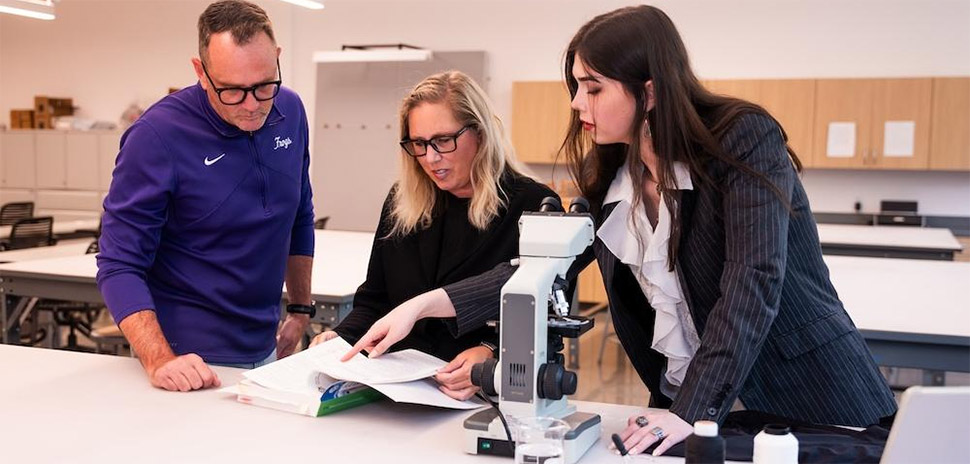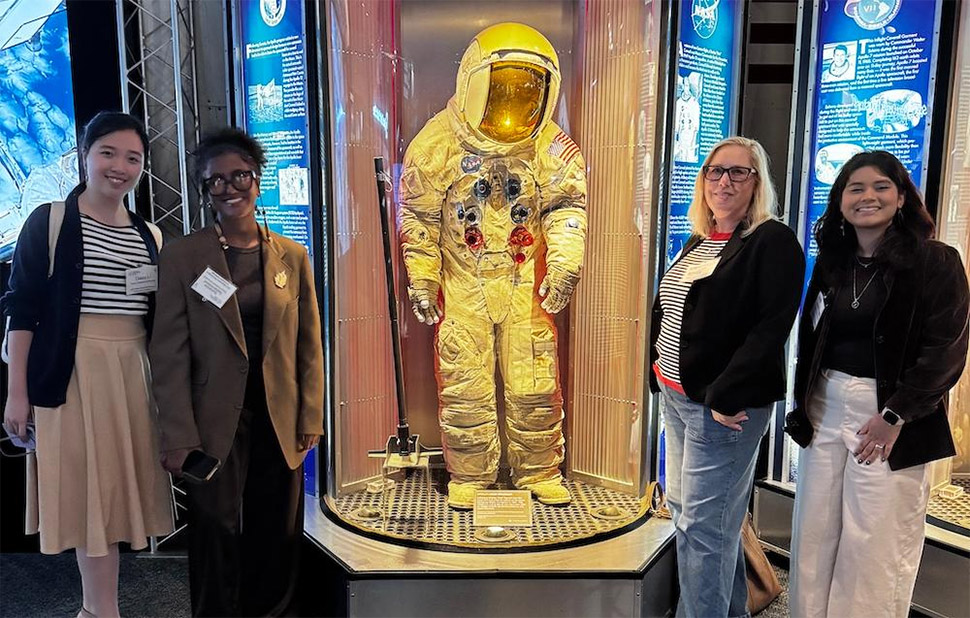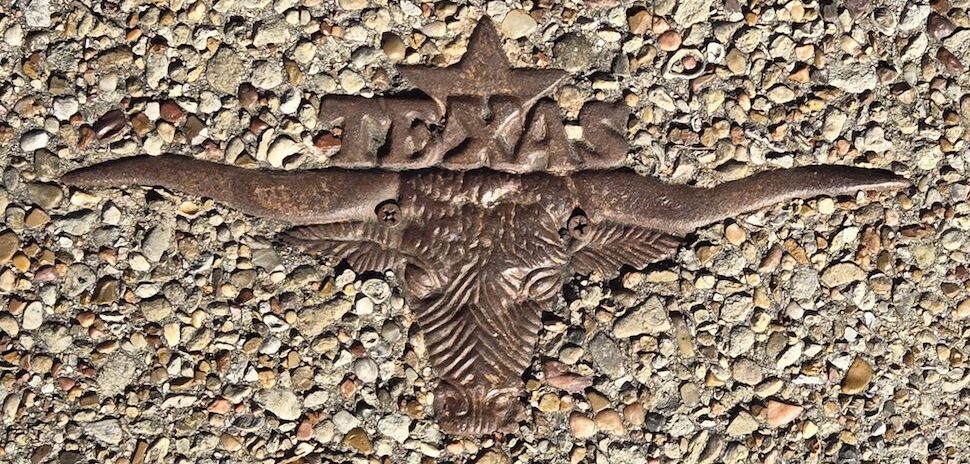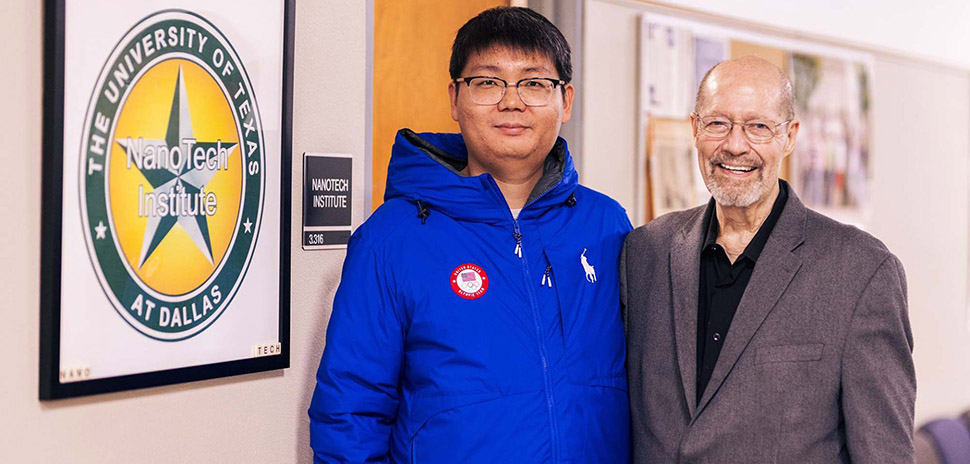
From left: Charles Freeman, Leslie Browning-Samoni and Adelaide Lovett [Photo: TCU]
After learning that microplastic fibers from textiles can lodge in human organs, Texas Christian University senior Adelaide Lovett wanted to explore fashion’s impact far beyond the runway—or even the microscope.
That curiosity led to a study published in May in Textiles, a peer-reviewed journal, where Lovett examined how synthetic fibers contribute to the spread of microplastics, nanoplastics, and textile fragments that make their way into the body.
Under the guidance of fashion merchandising chair Charles Freeman and instructor Leslie Browning-Samoni, Lovett examined how synthetic fibers contribute to the spread of microplastics, nanoplastics, and microplastic fibers.
Her review traced how fiber production, textile finishes, laundering, and disposal shed particles into ecosystems—and ultimately into the heart, lungs, and liver.
Fashion, psychology, and a big-picture mindset
Lovett wanted to bridge the worlds of psychology and fashion. “I have always been interested in combining ideas or topics that are not thought to be intimately related, and the mentorship with Freeman and Samoni allowed me to actualize goals I hadn’t even consciously set for myself,” Lovett said in a statement.
Lovett’s research leverages her dual focus in fashion merchandising and psychology, as well as her coursework in neuroscience. She has also worked in the lab of psychology professor Timothy Barth on ethical and moral decision-making.
“The societal problems we face today are complex and require multiple perspectives involving the integration of academic disciplines,” Barth said. “Adelaide’s experience in research across disciplines is an example of what can be accomplished.”
According to TCU, “this type of interdisciplinary work is at the heart of TCU’s strategic pillar of Research, Scholarship and Creative Activities. It also highlights how solutions rarely stop at the border of a single major or college.”
Toward solutions
For a fashion industry facing pressure from consumers, regulators, and investors to address sustainability, the study shows how research from Fort Worth is shaping the conversation.
Lovett’s study points to potential industry responses: biodegradable finishes, better filtration systems, and circular fashion models that recycle fibers. Each offers a way to reduce the environmental and health costs of synthetic textiles, it says.
Seams for space, and a NASA Innovation Award
In June, she was part of a TCU student team that earned the 2025 Best Innovation Award at NASA’s Spaceflight Human Optimization Conference in Houston. Their challenge: develop flexible, low-profile suit seams that protect astronauts from hazardous lunar dust—without relying on coatings or tape.
Working with high-performance materials like Kevlar and polyurethane-coated fabrics, the team constructed and tested seam samples using a simulated moon dust environment. Lovett led the sewing of initial test pieces and helped standardize every detail, from stitch length to needle type, to ensure the data was consistent and meaningful.
“To be a part of such an amazing team, and to be supported by incredible faculty advisors was such a fabulous opportunity,” Lovett said. “NASA is a symbol of innovation and reaching for greatness. Being invited to present the work we’ve all done was a fulfilling achievement in and of itself.”

From left: Daisy Li, Suzanna Tesfamicheal, faculty mentor Leslie Browning-Samoni, and Amarige “Sunny” Yusufji with a NASA spacesuit at Johnson Space Center in Houston. The team earned the 2025 Best Innovation Award in the Technology Collaboration Center Wearables Workshop and University Challenge. Adelaide Lovett also contributed to the project. [Photo: TCU]
Don’t miss what’s next. Subscribe to Dallas Innovates.
Track Dallas-Fort Worth’s business and innovation landscape with our curated news in your inbox Tuesday-Thursday.
R E A D N E X T
-

In TCU’s recent Insights publication, Neeley Executive Education faculty leader Eric Arseneau says generative AI is delivering real business value as it climbs Gartner’s “Slope of Enlightenment.” But AI specialization is creating unexpected friction for organizations. Here’s his take.
-

Last May, TCU named Tom Wavering as its first chief university strategy and innovation officer. The former executive director of the Tom Love Innovation Hub and entrepreneurship faculty member at the University of Oklahoma took up his post in July. But in order to advance TCU’s mission and vision—focusing on fostering innovation and academic excellence—he wanted to put down roots of his own. He has since done that, with a home that already had its Fort Worth sense of place literally set in stone.
-

An earlier version of the technology was used in jackets worn by U.S. Olympic athletes in 2022. A new fabrication technique could make large-scale production feasible for adaptive clothing to self-powered sensors and wearable tech.